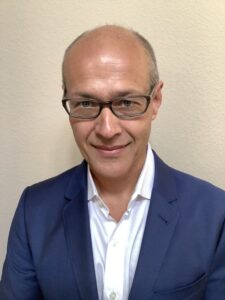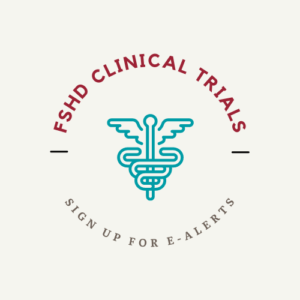By Alex Kiselyov, CEO, Myocea, Inc.

Myocea is a biotechnology startup with a focus on neuromuscular disorders. Our product pipeline is championed by the small molecule GBC0905 (Rebastinib) aimed at the treatment of FSHD Type 1 and Type 2. Myocea was spun out of San Diego-based Genea Biocells in 2019 after its parent company Genea decided to focus on its core business of in vitro fertilization. Following a seed capital investment, we inherited a robust and very mature technology to model diverse muscular dystrophies on the cellular level, along with the pipeline of candidate therapies. My colleagues in the field and I very much welcomed a rebirth of our sophisticated programs under the new name.
Our clinical candidate GBC0905 is a repurposed drug that is in multiple Phase 2 clinical studies by another company, which originally developed it for the treatment of solid tumors. Intriguingly, in our early screening efforts using various FSHD cell lines, the molecule displayed robust anti-DUX4 activity by modulating both toxic gene activation and toxic protein production. These encouraging data were recapitulated by our collaborator from University of Massachusetts Medical School, Charles Emerson, PhD, in a mouse model of FSHD featuring cells transplanted from patients.
In a series of subsequent studies, we established several likely mechanisms of DUX4 reduction mediated by GBC0905. These include both stabilization of cellular structure and blockade of damage in the skeletal muscle cells instilled by DUX4 and its products. I want to emphasize that GBC0905 seems to silence multiple toxic targets triggered by DUX4 activation. This mechanism of action is distinct from Losmapimod™, another small molecule clinical candidate for FSHD that is being evaluated in Phase 2. This early evidence granted our team an orphan drug designation status for the agent in May of 2018.
Encouraged by these data, we’ve been continuing our late-stage preclinical evaluation of the molecule. To date, we have successfully completed dose range finding studies and potential toxicity of GBC0905 in rodents – studies required by the FDA to initiate clinical trials. A few additional studies we are conducting in 2021 are expected to yield specific dosing and treatment regimens in humans, and long-term effects of the molecule on DUX4 and its products.

Our evaluation suggests that GBC0905 has a potential to become a much-needed addition to the list of treatments for FSHD. Specifically, we believe GBC0905 has the potential to be a once-daily oral therapeutic with dosing of less than 50 mg/day that targets the disease via multiple complementary mechanisms and displays a very robust long-term FSHD-modulating effect in patients.
I want to add that Myocea is developing muscle stem cells, also called satellite cells, as a potential therapeutic modality to treat specific muscles affected by the disease. These studies are at the early proof-of-concept stage; however we do see great potential in the ability of these unique progenitors to regenerate muscle function.
Myocea plans to file the investigational new drug (IND) application for GBC0905 with the FDA in the third quarter of 2021 to initiate clinical trials in early 2022.
For more information, visit myocea.com/index.


This is so exciting to see the potential for multiple simultaneous FSHD drug trials targeting the disease cause. So much past work of so many researchers, advocates and volunteers coming to fruition. If nothing else, all of us affected by FSHD, know someone affected or at all involved in the FSHD cause should be feeling a great deal of hope for the not so distant future.
I echo Jim’s comments. Very exciting.
Good morning, I am the mother of a 10-year-old girl with this condition. we are from Greece and you do not have a doctor can help us and give us instructions for this condition, we all tell that there is no medicine and the child has ended up having a severe lordosis that does not allow him to walk. I could have some information on the progress of your research and if there are chances for us to get better.
Wonderful to see this drug candidate reACTIVATED! It seems to have great potential as another treatment for FSHD.
my shoulders are gone and my orthopedic surgeon want to do both shoulder replacements at different times, I am so afraid that I won’t recover from this surgery. I don’t know where to turn. I am on a walker. I am 74 and have FSHD since age 56. The MDA has done nothing but want me to go into a wheel chair. What is the answer to my problem. I need some advice. Thank you Donna Heatherington
Thank you! I appreciate your work.
This is amazing, hopefully the light at the end of the tunnel has been switched on. How can people volunteer for trials??
This is wonderful and hopeful news that can help so many people who suffer from FSHD.
I am praying that it will help my niece and others that have suffered so many years.
Amazing! My son Callum who has the disease, worked at Genea keeping those stem cells vital. He now works at Hologic in San Diego as a quality assay writer. Go team FSHD!
Myocea seems to have dropped off the map. Their phone number or email doesnt work. Neither does their web based message interface.
You can email them from their website: https://myocea.com/index
Try that email. Neither the web inquiry form or email address work. Neither does their published phone number.
We alerted Myocea and the website’s contact form is now working.
Any news on this June?
We haven’t heard anything yet, but the company is still working on advancing this compound.
Nothing to report yet.